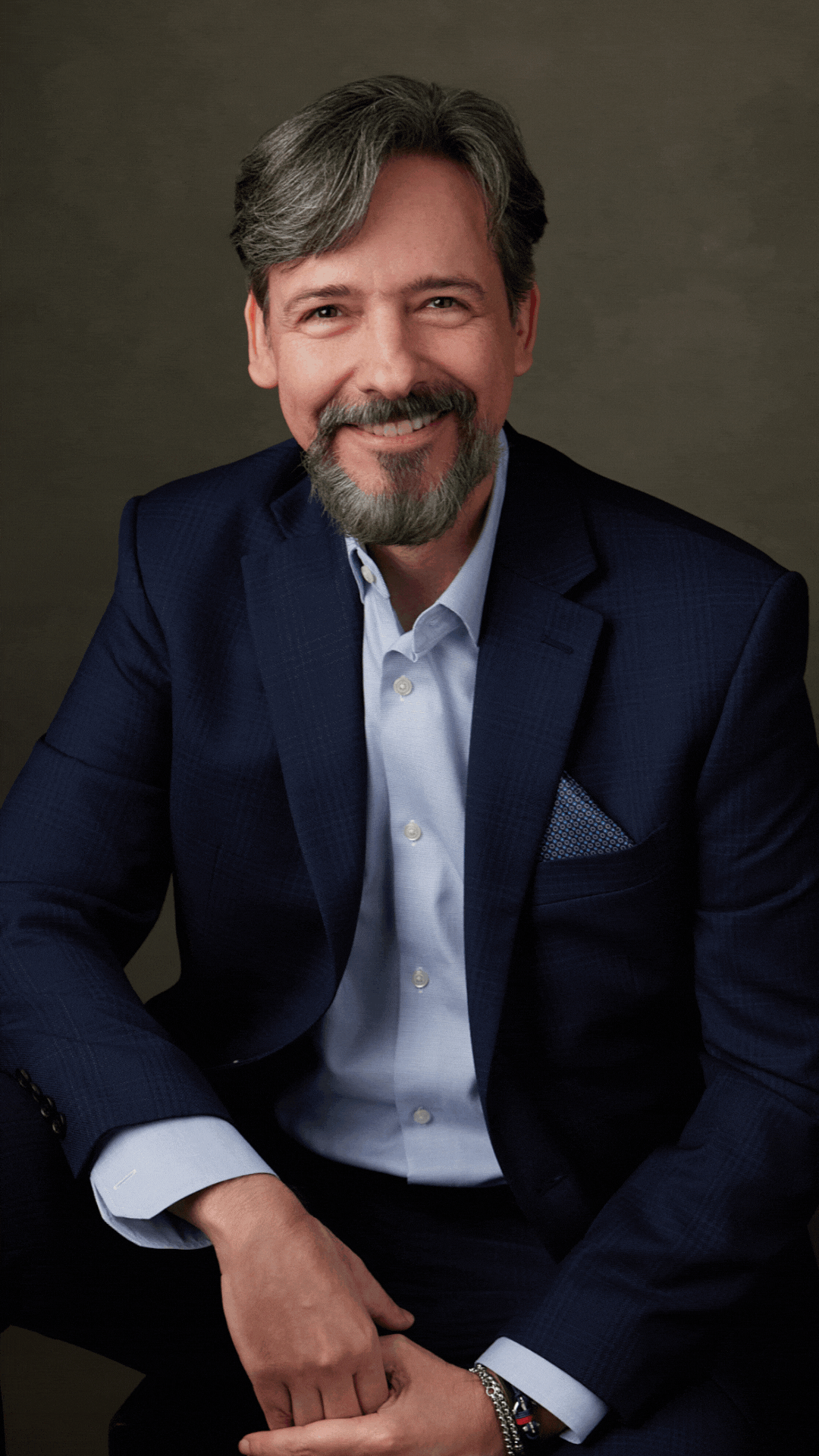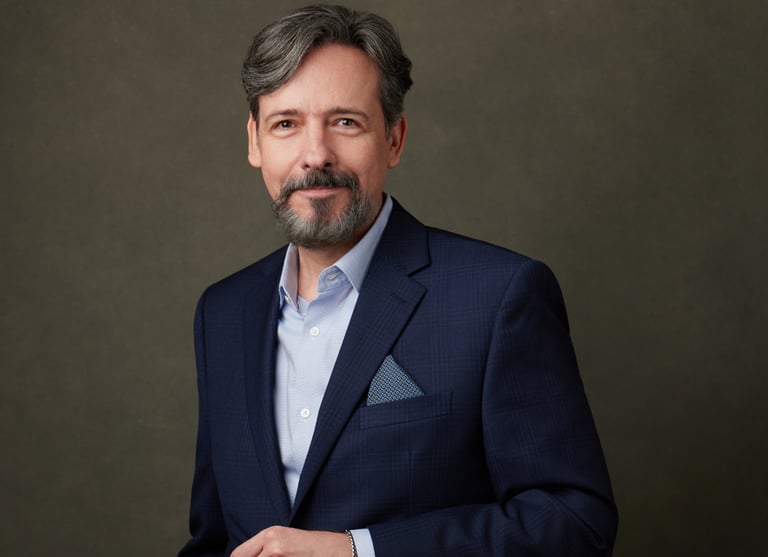Transform wishes into something executable | Marco Marini
FEATUREDTOP ENTREPRENEURSFOUNDERS


What was the decisive moment that made you decide to become an entrepreneur/business owner?
"The truth is that the desire to become an entrepreneur has always been with me, not as a fantasy, but as a concrete life goal. However, as happens with many newly graduated professionals, my path initially followed the natural course of entering the job market. After finishing my degree in Architecture and Urbanism, I understood that before building a company, I would need to build myself as a professional: mature, acquire real experience, develop a strategic mindset and, above all, establish a reputation built on seriousness, competence and trust.
It was in that spirit that I decided to expand my horizons, spending a season in the United States. The idea was initially temporary, a bridge before heading to Europe in search of more learning and international exposure. But as life rarely follows a fixed script, an opportunity emerged that changed the course of my trajectory: I received an offer to work for a renowned American engineering and architecture company.
What was meant to be a brief experience turned into a deep immersion in the international corporate world. Over time I climbed positions, took on greater responsibilities, moved across different companies and sectors, expanded my scope of action and, above all, accumulated valuable life experiences.
To support that growth and prepare for the rising challenges of the roles I was beginning to take on, I decided to complement my training with an MBA in Texas, United States. It was a strategic choice, not only to broaden my management and leadership repertoire, but also to consolidate credentials that would allow me to operate at increasingly higher levels within the corporate environment. The MBA served as a bridge between professional practice and the executive vision I aspired to develop.
As is common for those who have leadership spirit and professional ambition, I was naturally drawn to seek bigger, more complex, more strategic challenges. Even so, the flame of entrepreneurship never stopped burning in the background. On the contrary, it just grew.
Over the years, I realized that my professional responsibilities had reached a level that compromised other areas of my life. The balance between career and quality of life began to falter. And it was precisely at that point of reflection, when professional success starts to demand too high a price, that I finally decided it was time to invest in my own dreams.
It was not about working less, of course, but about directing my time and energy toward a more personal purpose, aligned with my values, my yearnings and the future I want for myself and my family."
What inspired you to take this path and what were the first steps?
"The great inspiration was, without doubt, the desire for a life with more autonomy, purpose and personal fulfillment. But it was also the result of years of observation and strategic analysis within my field: architecture, urbanism and real estate development.
From early on, even working in the planning and structure of large developments, many times for other people, I felt that my place was on the other side of the table. I wanted to stop being only the professional who conceptualizes and plans projects, and instead become the operator and the investor. The entrepreneurial vision was always present, waiting for the right moment to materialize.
The first step was transforming all the knowledge accumulated throughout my professional and personal trajectory into a concrete plan. I developed a well-structured business plan, with solid technical foundation and clear strategies. I put on paper not only ideas, but also projections, timelines, metrics and scenarios. As part of that process, I also involved study and allocation of resources, assessing risks and priorities based on data and past experiences. In parallel, I started engaging my network, seeking synergies, partners and opportunities.
For me, becoming an entrepreneur was a natural transition, yet carefully planned. It was not a leap into the dark, but a firm step toward a new phase, where risk is part of the game, but where also the fruits of freedom and genuine creation are harvested with much greater intensity."
How do you deal with failure or mistakes made along the way?
"I can say with honesty that at first, I did not handle them well. Frustration comes immediately, accompanied by a certain degree of discontent, especially when I believe something should have been avoided or foreseen under my watch. Like many demanding professionals, I hold myself accountable intensely in that initial moment.
After that initial frustration, the following phase is more rational. That kind of emotional reaction needs to give way to objective analysis of the situation. It is time to accept the facts, understand that the situation is already in place and from there on the expectation is a capacity to respond. To evaluate the scenario with clarity, activate a containment plan, control the damage, recalculate the route and take the necessary measures to move forward. And above all, absorb the learning the moment offers.
The attitude now is to look at mistakes with objectivity, without denying they happened, but also without allowing them to define the course of the journey."
Is there a specific example where a failure turned into a valuable lesson?
"Yes, I believe one of the most striking lessons came from decisions that, in retrospect, I was knowingly being too optimistic about. There were moments when I convinced myself that certain risks were calculated, when deep down I knew the risks were higher than I was willing to admit. It was, in a way, a gamble driven by the desire for success, because the outcome would be ideal.
What was most valuable about that experience was realizing more clearly the importance of distinguishing between what I would like to be true and what in fact was more likely. That awareness comes from paying attention to one’s own judgment, balancing intuition and analysis, and from the ability to listen to what is inside you with greater honesty.
That kind of reflection translates into maturity, experience and self-knowledge. A continuous process of improvement that strengthens the way decisions are made, even in complex or challenging settings."
Transform wishes into something executable.
Special Interview - Marco Marini


About Marco Marini
Marco Marini, 53 years old, is an entrepreneur and investor in the U.S. real estate sector, leading MLX Alliance Capital, a company headquartered in Texas. With over 25 years of international experience in real estate, architecture, property development, strategic management, and business, he has worked on large-scale projects both in the U.S. and abroad, leading initiatives across the public and private sectors, including real estate, hospitality, infrastructure, energy, and oil and gas.
With a degree in Architecture and Urban Design and an MBA in Business from the United States, Marco now focuses his efforts on the acquisition, development, and repositioning of real estate assets, while also structuring investment opportunities for both domestic and international audiences. He has lived in various regions of Brazil and the United States and currently resides in Houston, Texas.
Follow Marco Marini click on the icon below:
Currently, what are the latest news/launches of your business/company and what major projects/launches are planned for the coming year 2026?
"Right now, the focus is on expansion and diversification of activities. Over the years I have had the opportunity to deepen my experience in different segments and investment models within the real estate market, a sector that remains one of the pillars of the American economy. I have learned that there are multiple ways to participate in this market in a strategic and solid manner, and that knowledge has guided the next steps of the business.
The expansion involves not only geographic enlargement, with new projects beyond Texas, but also diversification into different sectors and levels of investment. Up to now the operations have been carried out mostly with own resources, but we are opening up space to accommodate qualified investors, with the objective of increasing the scale and return of the developments.
Part of this initiative aims also to serve foreign investors, especially from Latin America, who seek legal security, political stability and economic predictability. Instability in certain markets has led many investors to look for safer alternatives, and I see in that a concrete opportunity to create value both for the local market and for international capital.
The projects planned maintain a direct connection with the real estate sector, in which I have been active for decades, both in the United States and internationally. Among them are: development of residential complexes for rental in metropolitan areas, construction of hospitals in regions with low infrastructure supply, conversion of existing buildings for residential use, helping to alleviate the housing shortage in the US, in addition to residential and commercial developments aimed at both sale and rent.
A special highlight continues to be the state of Texas, which has shown consistent growth in recent years, driven by policies of incentive to business, job creation, and investment in technology. It is a dynamic business environment that will continue to offer great opportunities in the coming years. Texas is, without doubt, a true force engine for those who undertake with long-term vision."
If you could go back in time, what would you say to your beginning entrepreneur self? What important advice would you give to someone who is starting now?
"Perhaps this is not the healthiest exercise. All jokes aside, if I could go back in time, I probably would have shortened my time in the corporate world and started my entrepreneurial journey earlier.
I began this new chapter in Texas, but before that I lived many years in Miami, where I participated closely in the development and revitalization of areas like Downtown, Brickell, Biscayne Bay, Design District, Midtown Miami, among others. For those familiar with the local real estate market, you know what I’m talking about.
Our projects extended to the northern part of the state and even to the islands of Florida. I had access to ideas and information before they became public, thanks to direct contact with investors and visionaries. I knew about expansions of ports, airports, tunnels, theaters, road infrastructure, about the major developments that were coming. I knew which areas were likely to appreciate and which would not make good investments, the direction in which the city was developing. In retrospect, perhaps that was the ideal moment to start.
On the other hand, perhaps I would not have lived, learned and matured as I have since. Perhaps I would not have moved to Texas. Perhaps I would have made mistakes for which I was not prepared. Who knows. Surely everything would have been different. So yes, maybe I would have told my younger self to begin sooner, but I also recognize that my story happened as it had to. And I have no regrets about that.
For those starting now, the advice is clear: believe in what has stirred your heart, but turn that desire into something executable. Draw up a life plan, even if flexible, because life demands adaptations, course adjustments, and often we face unexpected adversities. But have a central direction, a backbone that supports your decisions. Changing course when necessary is part of the process, but changing on impulse or because of constant insecurity can compromise the path.
It is essential to know deeply the field in which you intend to act. Only thus is it possible to control risks with greater precision. And more importantly: you need to know yourself. Understand if what you want to build is, in fact, aligned with your profile, with your inner structure. Dreams are important, but not all dreams suit all people. If preparation is lacking, you can learn. But if identity with the chosen path is missing, it will be difficult to sustain.
Success comes from work, consistency, the ability to persist with intelligence. It is not the product of chance nor luck. And certainly it is not a result of giving up or changing direction each time you face a “no.” No one said it would be easy. But it is possible, for those willing to do what needs to be done."

